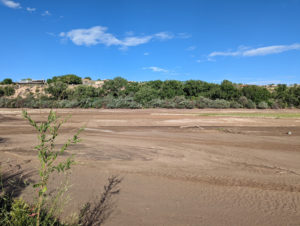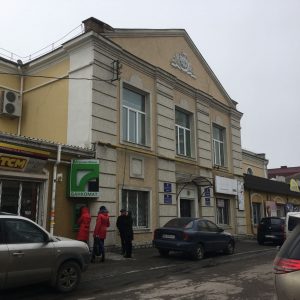A Harvard Law conference and project focuses on Indigenous traditional knowledge and modern justice
Feb 26, 2024
By Brett Milano
The protection of Indigenous peoples’ knowledge has become increasingly significant in recent decades. According to Angela R. Riley ’98, who spoke at Harvard Law School on Feb. 15, there has been a philosophical shift “from lands to brands”: Native American tribes have come to regard the preservation of traditional knowledge and genetic resources as just as crucial as the preservation of sacred lands. According to an internationally accepted definition, traditional knowledge — known as TK — includes know-how, skills, and practices that are developed, sustained, and passed on from generation to generation within a community, and is closely tied to the community’s spiritual and cultural distinctiveness.
Riley, a professor of law and American Indian Studies at UCLA, delivered a keynote address at a daylong conference “Indigenous Peoples, Traditional Knowledge and Intellectual Property in International Law,” hosted by the Law School’s Project on Traditional Knowledge and Modern Justice, founded by Ruth L. Okediji LL.M. ’91 S.J.D. ’95, the Jeremiah Smith, Jr. Professor of Law, with the support of the McDonald Agape Foundation.
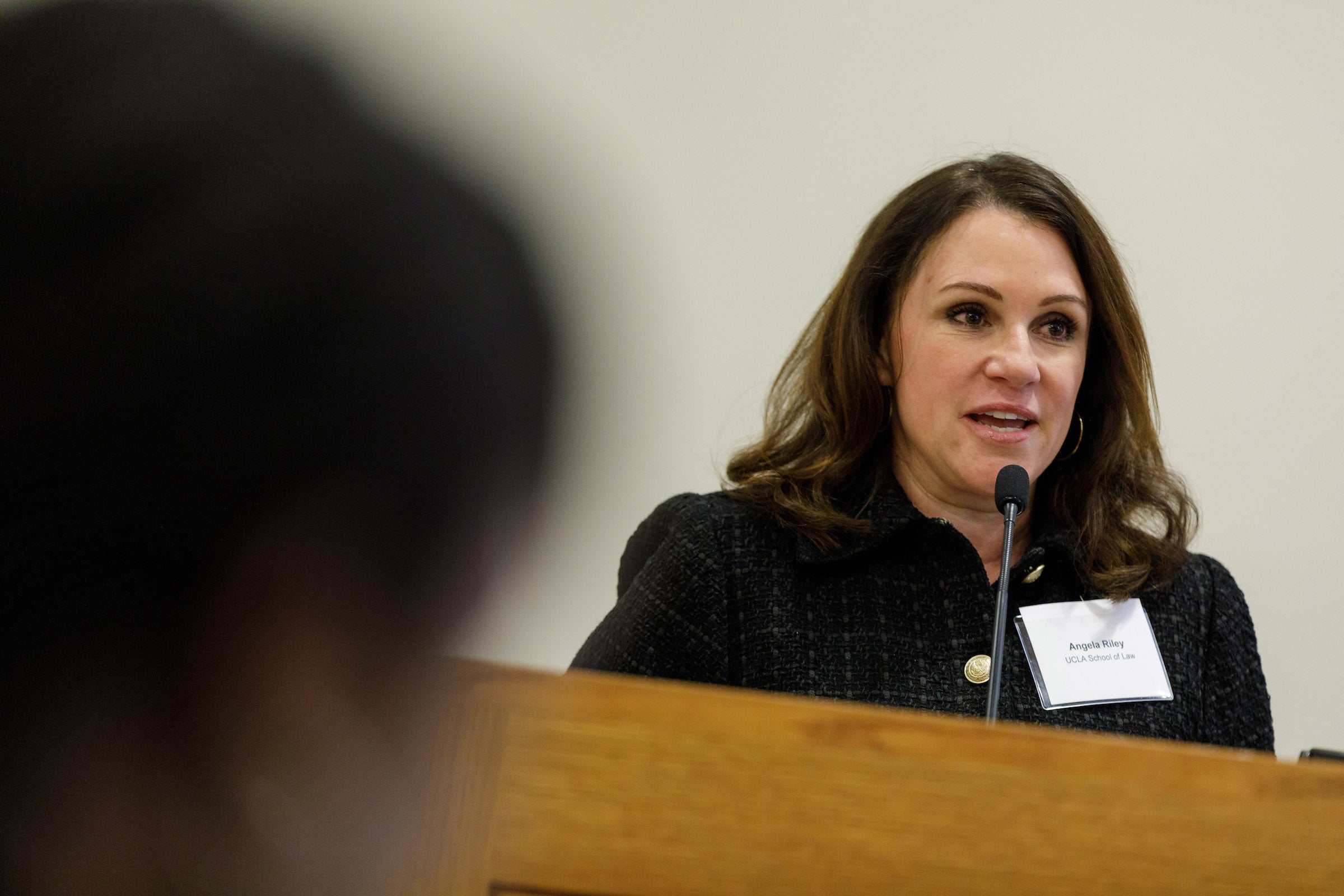
The conference, the third in a three-conference series, brought together scholars in intellectual property, law and economics, property, and human rights to explore what Okediji framed in a highly influential 2022 article as the “fundamental moral and justice-related aspects of TK protection, including its centrality to Indigenous peoples’ cultural identity … and their long-term socioeconomic development.” Okediji argued in that article that intellectual property law has a “moral gap” in relation to Indigenous Peoples’ creative works.
Renowned property law scholar Carol Rose, the Gordon Bradford Tweedy Professor Emerita of Law and Organization at Yale Law School, kicked off the conference with an opening address which reflected on how property could help in protecting Indigenous peoples’ knowledge. Rose noted that one of the justifications for property is that it encourages productive labor, entrepreneurship, and commerce, thus enhancing individual and collective wealth by facilitating opportunities for voluntary exchange. Property does, however, have barriers in regard to traditional knowledge, she said, such as defining what it is, who owns it, and conditions for excluding others.
Those issues were explored further in a series of panels on the legal, philosophical, and doctrinal challenges related to national and global efforts to secure property rights in traditional knowledge. Panelist included Harvard Law Professors William “Terry” Fisher ’82, the WilmerHale Professor of Intellectual Property Law, and Henry Smith, the Fessenden Professor of Law, Wendy Gordon, Professor of Law Emerita at Boston University, and Justin Hughes ’86, the Hon. William Matthew Byrne, Jr. Distinguished Professor of Law at Loyola Marymount.
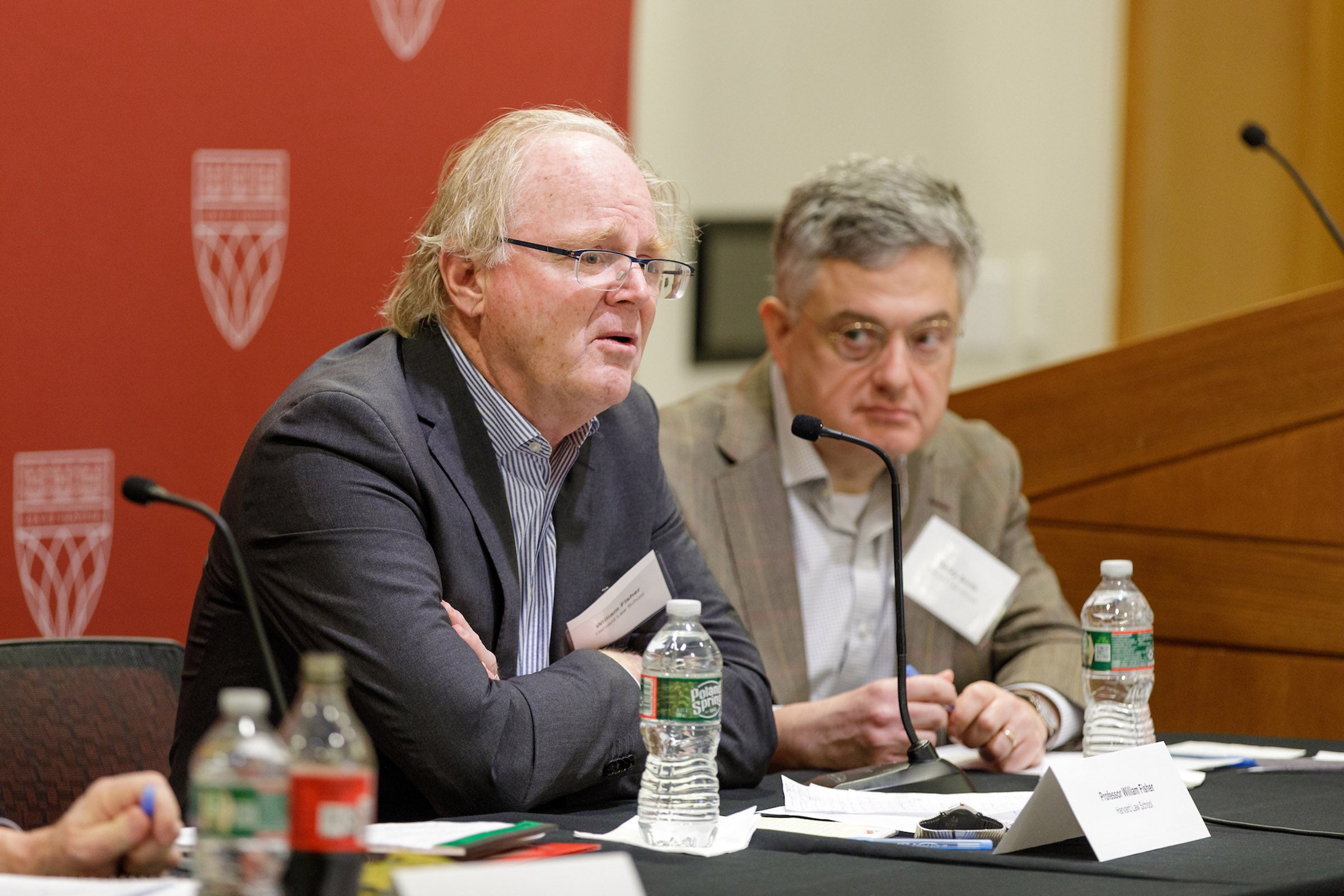
In her keynote, Riley acknowledged that the question of what Indigenous peoples want for their traditional knowledge is hard to answer definitively, given the autonomy of self-governed tribes. However, she noted separate research that found an exponential jump both in cultural preservation programs and in laws relating to intellectual property and cultural property. In fact, the concept of “data sovereignty” barely existed in 2005, whereas about 50 tribes in the United States had related laws and projects by 2020.
Indigenous communities, she said, tend to take the “long view” in lawmaking. “If you meet Indian people, they are very seldom thinking [just] about what is happening right here, right now. There is a lot of understanding of the world in terms of ancestors who came before, and the generations coming next. That is also reflected in the tribal laws, that the protection of cultural property writ large is for the future, it is for the generations coming after them.”
“Every indigenous group I’ve ever worked with has one core belief in common: that who they are as a people is inextricably tied to and comes from place — from the place that they’re from, from those sacred lands, and those lands are the place of their creation. … That is also the place that ties into everything to do with an indigenous group’s culture — the language they use, what iconography you see in their artwork, what their stories and songs look like. They’re all tied to place.”
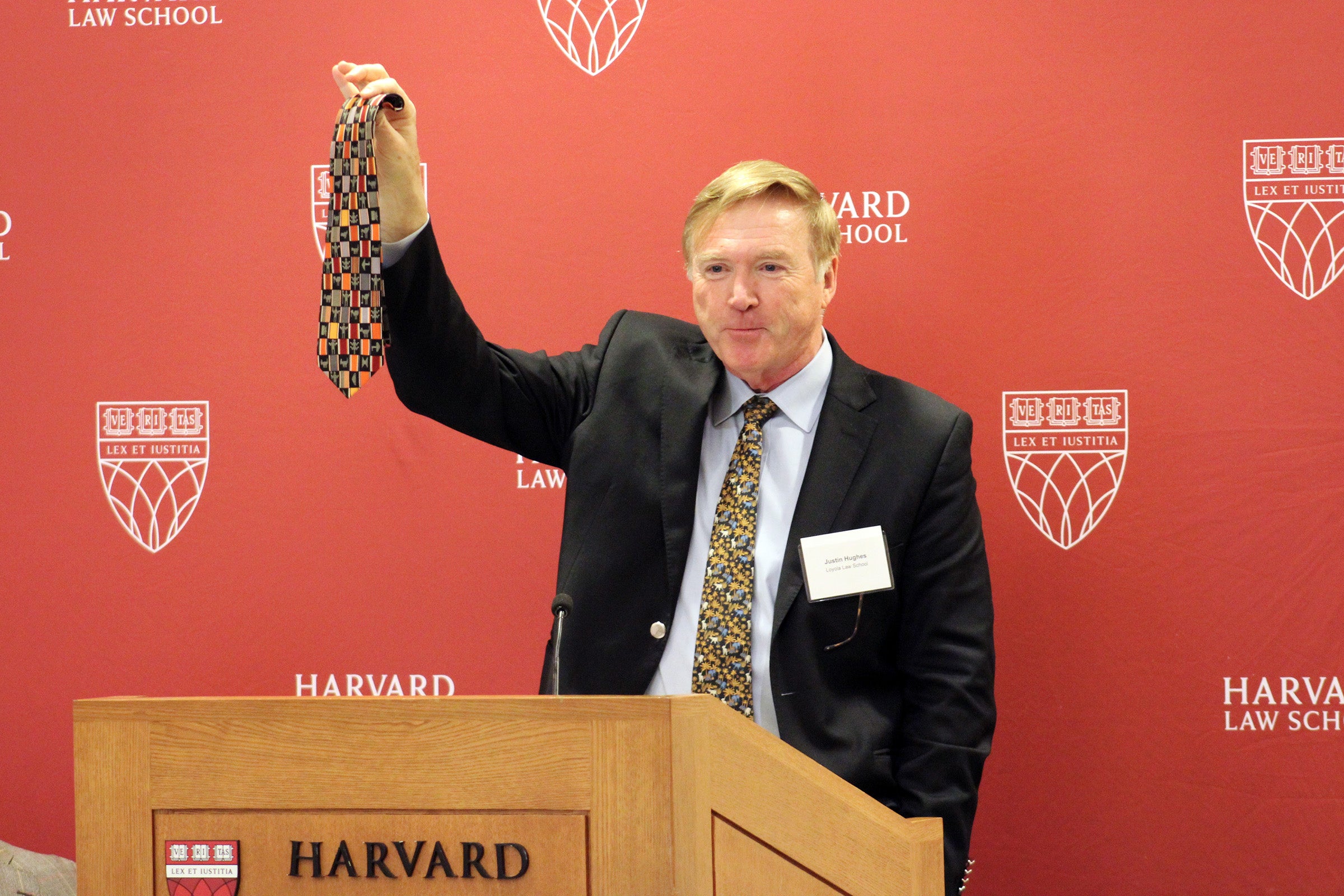
In a panel on “Legal, Ethical, and Economic Foundations for Indigenous Intangible Property,” moderated by Olufunmilayo B. Arewa ’94, Kennedy School Professor Joseph Kalt addressed a misconception that has informed a significant amount of U.S. government policy: “The claim is that indigenous culture is the primary impediment to improving the well-being of indigenous peoples,” he said. “I suspect that is still the standard view … that the challenges of poverty and disempowerment [are there] because of cultural impediments.” He cited a 1969 quote from the U.S. Federal Bureau of Indian Affairs: “Development will proceed as the process of acculturation allows.”
“What does that mean?” he asked. “It means that until you turn into good mainstream dominant society capitalists, you’re not going to develop.” In fact, he said, the opposite is true: income growth among native Americans has seen an “absolutely phenomenal economic boom,” with a nearly 60 percent increase in per capita income on reservations over the past 30 years — a growth three times faster than that of the overall U.S. economy.
Kalt attributed this to the passage of the self-governance amendments to the Indian Self-Determination Act in 1989; the positive turn coincided with tribes writing their own laws, electing their own leaders, and embracing their own culture. Traditional knowledge, including medical and lawmaking, contributed to this growth. “We turn tribes loose to govern themselves and boom, they take off.”
In a panel on legal, ethical, and economic foundations for indigenous intangible property, Professor Graham Dutfield, University of Leeds School of Law in the UK, also noted ways in which resistance to traditional knowledge protection has undermined self-determination efforts for Indigenous Peoples, arguing that the right to self-governance necessarily includes land ownership.
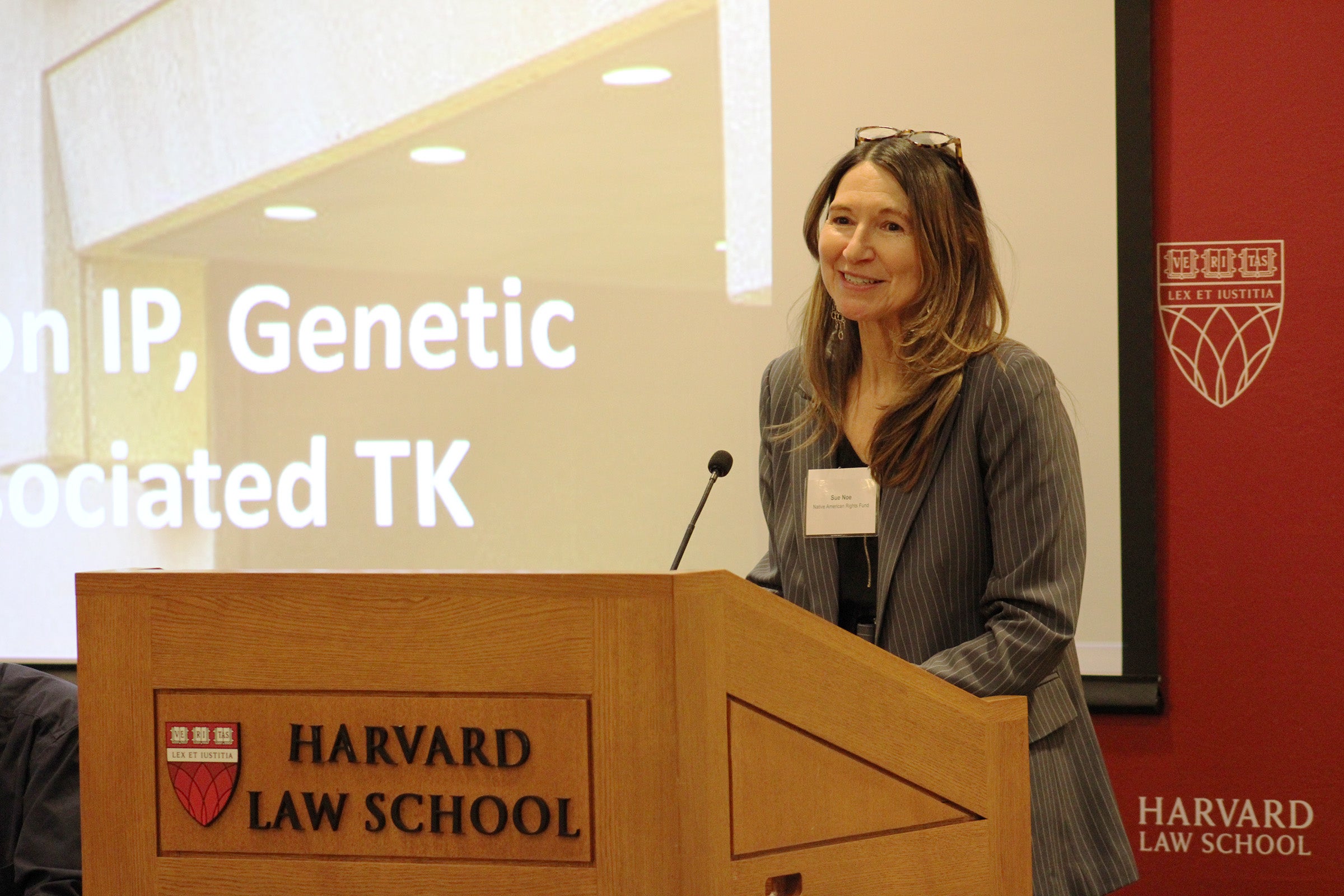
In her closing remarks, Okediji highlighted human rights concerns expressed by the audience of over 120 participants and tackled in separate panels comprised of Professors Margo Bagley (Emory), Madhavi Sunder (Georgetown), Peter Yu (Texas A&M), Joy Porter (Hull, UK) and Chidi Oguamanam (Ottawa), who spoke about the diversity and power dynamics of global efforts to address Indigenous Peoples’ Traditional Knowledge concerns.
Drawing upon her recent work, Okediji concluded that “protecting TK and other Indigenous assets will require structural and substantive change in deeply entrenched narratives in international law and in IP law about Indigenous peoples and local communities.” She added that an exclusively secular approach to intellectual property “produces an impoverished view of humans, and thus of the relationship between creators and the environment on which they depend for wellbeing; it presumes a unidirectional flow of creativity and consumption — from “authors” and “inventors” to society, but with inadequate consideration of Indigenous peoples who contribute through their knowledge and creativity to our natural environment and its preservation.”


